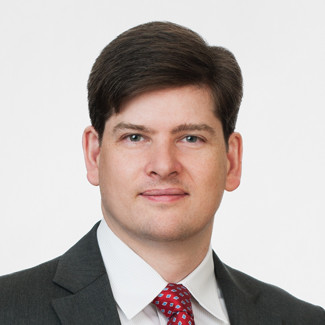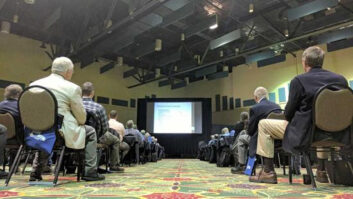 “The reality is: It’s hard out there for broadcasters.”
“The reality is: It’s hard out there for broadcasters.”
So said FCC Commissioner Nathan Simington, speaking to a meeting of the Ohio Association of Broadcasters.
For the second time in a month, the Republican commissioner made public remarks that were notably sympathetic to radio and TV companies and their struggles when competing with big tech.
“Consider, you know, the smaller broadcasters. The folks who have one, two, or half a dozen stations. Consider how difficult it is for them to achieve efficiencies of scale — consider what their margins look like because they’re smaller operators. Now, is there a single online video platform that is a mom-and-pop operation? Of course not! Every single one is either backed by a massive tech platform, deep-pocketed venture capitalists, or a major network. If not, it’s out of business in a year. …
“Those platforms are competing with mom and pop broadcasters — or, shoot, even established station groups — with operating efficiencies, margins and capital markets backing of which broadcasters dare not dream,” Simington continued.
“Can we seriously think, at this moment, with the arrows pointing in the directions that they are, that we should be making it harder for these small, regulated entities to operate? You are all already burdened by a raft of regulations designed for a bygone era while your insurgent online competitors have functionally none of the same constraints. Should we now turn the screw?”
[See more of our coverage of the FCC.]
Simington noted that the FCC will soon again consider media regulation in a quadrennial proceeding. Echoing frequent arguments made by the NAB about how the commission defines broadcasters’ marketplace, Simingon said that the commission needs to recognize that online media platforms are growing rapidly “and threaten dominance over traditional media platforms,” and that “broadcast advertising revenue has flatlined, having been siphoned off from higher margin online platforms.”
The commissioner said he is “not necessarily” arguing for more regulation of big tech — “Not everything is a regulatory problem. Maybe this one is. I don’t know” — but he said regulators need to be “clear-eyed about where the power has shifted. It is away from broadcasters. Away from networks. Even away from traditional MVPDs. And toward online platforms. And if we are going to talk about serving as a check against uncontrolled concentration of media power that is presumably antithetical to consumer welfare — well. The conversation need not end at online platforms, but it must at least start with them.”
Comment on this or any article. Email radioworld@futurenet.com.







